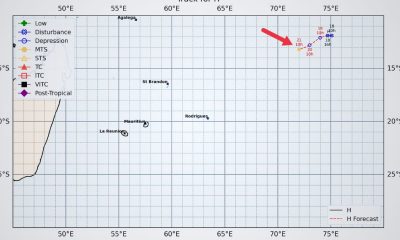Business
Africa and Japan Strengthen Trade Ties as TICAD 9 Concludes in Yokohama

African leaders and their Japanese counterparts have reaffirmed their commitment to boosting trade and investment, concluding the ninth Tokyo International Conference on African Development (TICAD 9) with a joint communiqué that champions multilateral commerce. The declaration, which wrapped up the conference on August 22, underscores a united front against rising global protectionism and appears to signal Japan’s intent to present an alternative to China’s growing influence on the continent.
The conference, held in Yokohama, saw a notable focus on private-sector investment, a shift from previous summits which primarily highlighted Japanese government aid.
The most significant announcement was a $5.5 billion loan package provided through the African Development Bank, earmarked for infrastructure development.
This contrasts sharply with the $30 billion pledge made at the previous TICAD, reflecting a new strategy as Official Development Assistance (ODA) wanes.
Haoliang Xu of the United Nations Development Programme (UNDP) highlighted this trend, stressing the need for private-sector solutions to tackle challenges like climate change and infrastructure deficits.
A Call for Economic Unity and Collaboration
The joint declaration issued by the Japanese and African delegations reaffirmed the importance of an “open, rules-based multilateral trading system” with the World Trade Organization (WTO) at its core.
This statement, a clear rebuke of high tariffs and protectionist policies, also highlighted the need for collaboration ahead of the 2026 WTO ministerial conference scheduled to be held in Cameroon.
Mauritian Prime Minister Navin Ramgoolam spoke passionately on the importance of African unity in overcoming these challenges, advocating for the African Continental Free Trade Area (AfCFTA) as a crucial tool for boosting intra-African commerce.
Ramgoolam noted that the conference allows African nations to “leverage Japan’s valuable experience,” adding that his government fully aligns with the TICAD declaration.
Overcoming Investor Aversion
While TICAD 9 emphasised the promotion of Japanese private-sector investment in Africa, a key challenge remains: overcoming Japanese investors’ aversion to risk.
Despite this, major Japanese financial institutions, including the country’s largest bank, Mitsubishi UFJ Financial Group, were active participants, signing memorandums of understanding with various African entities.
Japanese Prime Minister Shigeru Ishiba unveiled the “Economic Region Initiative”, a plan to strengthen trade in the “Indian Ocean-Africa” area.
This initiative includes a partnership with Mozambique, Malawi, and Zambia to develop the Nacala Corridor, a vital route for exporting minerals and raw materials.
Ishiba expressed his intention to increase investment, foster industrial cooperation, and develop human resources, with a specific focus on regional integration and industrial growth alongside countries in the Indo-Pacific region.
Prime Minister Ramgoolam also stressed that increased investment, particularly from Japan, would help Africa address its structural challenges, unlocking socioeconomic transformation through unity and collaboration with Japan and other partners for a sustainable future.
Source: l’Express











